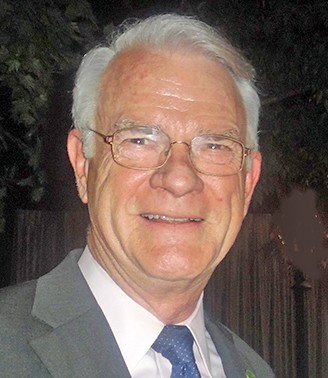Monday’s meeting of the Shelby County Commission began with the attendees under instruction to take a deep breath. This was both because County Mayor Lee Harris had a breath consultant on hand as part of his current public health campaign, and because a controversial — and potentially aggravating — subject was on the agenda. That subject belongs to a type of issue that can be filed under NIMBY (Not in My Back Yard). At question was whether the commission should approve an application from Memphis Stone and Gravel to construct a mine site for gravel excavation in a remote part of the Rosemark community in upper Shelby County, as well as the approaches to that site. (As part of the latter endeavor, the company volunteered to improve an already existing road and to maintain it at the company’s own expense.)
The Office of Planning and Development had given the project a preliminary approval, but the county Land Use and Development Board had turned it down.
The case for the mine was made by lawyer Michael Fay, who told commissioners that Memphis Stone and Gravel, in business locally since 1910, was an indispensable source of gravel for construction purposes in Memphis and Shelby County, that there were no alternative sites in the county for the high-grade gravel required for future projects, and that, if the application should be denied, Memphis Stone and Gravel only had enough such gravel on hand to last three years, after which it might be forced to move out of the county.

“We are the only supplier that can meet the needs of the airport,” Fay warned, adding that if the company were forced to import gravel from elsewhere that would end up adding as much as $2.2 million to the costs of an ongoing construction project of St. Jude Children’s Research Hospital. Various employees of Memphis Stone and Gravel also testified to the importance of the mine for their personal livelihoods.
The opposition to the application consisted mainly of residents of the Rosemark area, including a woman who suffered serious injuries when her car was met on a narrow road by a truck carrying a load from an earlier, smaller gravel plot near the proposed site. Most of the other residents expressed safety concerns, too, as well as quality-of-life issues and potential drops in the value of their properties.
Two former chairs of the commission, Terry Roland and Heidi Shafer, joined the protesters. Roland at one point branded a “bald-faced lie” a claim made by the applicants that no other fully equipped gravel company operated in Shelby County.
Shafer recalled the dilemma she had back in 2011 when a similar proposal came before the commission. She said she deliberated seriously on arguments pro and con and finally opted for the latter.
Shafer’s position of eight years ago was roughly the same as it was this year, said Commissioner Amber Mills, whose District 1 contains the site of the proposed mine.
In the end, the commission majority seemed to reason similarly. The final vote was one for (Commissioner Reginald Milton), eight opposed, and two abstaining.
At the same commission meeting, Jimmy Rout was elected County Historian to succeed the longtime holder of that unpaid position, Jimmy Ogle. Ogle, who is moving to Knoxville, will be honored for his service by the commission at a subsequent meeting.
• Both local political parties are in the throes of reorganization. The Shelby County Republican Party held its precinct caucuses Sunday at Arlington High School, and the delegates elected there will meet at the same location on Sunday, February 24th, to elect new officers, including a chairman to succeed the retiring Lee Mills. The new chair seems certain to be Chris Tutor, a lawyer at the Butler Snow law firm and, so far, the only person seeking the chairmanship.
The Shelby County Democrats are scheduled to hold party caucuses on March 30th, electing the party executive committee and a larger parliamentary body called the “grass roots” committee.
The members of these two bodies will meet one week later and elect a party chair, who may or may not be the current chairman, Corey Strong. It has long been assumed by local Democrats, mainly on word from Strong himself, that he would not seek reelection, but a recent news report suggested (on what evidence is unknown) that Strong has had a change of mind.
 JB
JB 
 Jackson Baker
Jackson Baker 
 Traceywood | Dreamstime.com
Traceywood | Dreamstime.com 
 Jackson Baker
Jackson Baker  Jackson Baker
Jackson Baker